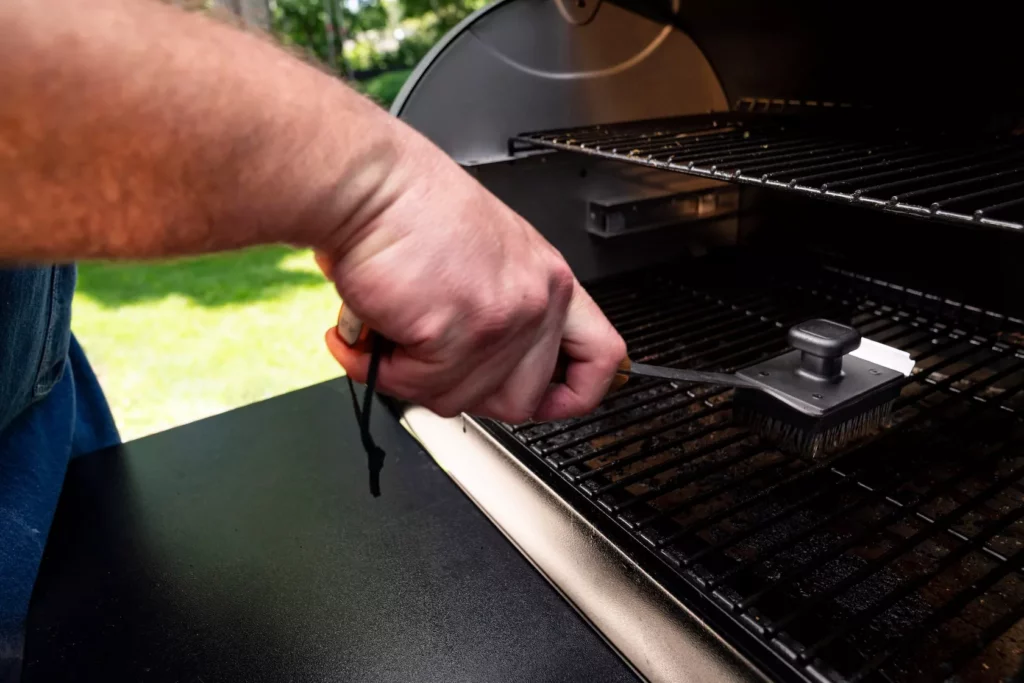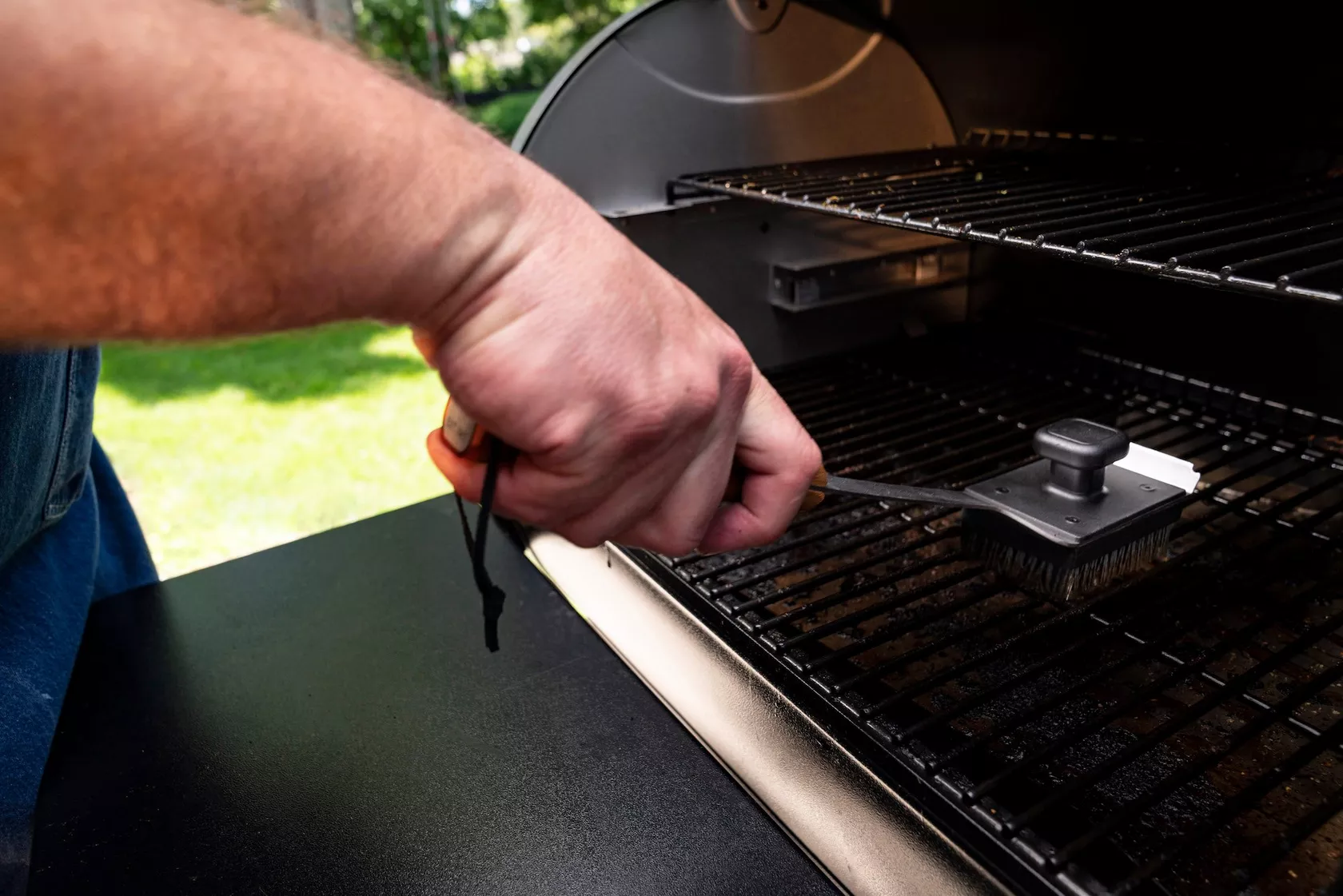
Keeping your grill clean isn’t just about aesthetics; it’s all about making your food taste great and keeping it safe to eat. Imagine barbecue flavors mingling beautifully without the shadow of last week’s burgers. A regular cleaning routine wards off unwanted residue, giving your meals their well-deserved spotlight.
Different grills come with their own quirks. Whether you’re working with the smoky charm of charcoal, the convenience of gas, or the straightforwardness of electric grills, each type demands a tailored cleaning approach. Knowing what kind you have is the first step toward effective maintenance.
Let’s face it, a grill ignored is a problem waiting to ignite. From uneven heat to flare-ups caused by grease build-up, neglecting your grill can lead to unsavory, and sometimes unsafe, results. Regular cleaning can dodge these bullets, preserving your grill’s performance for those times when you need it most.
There’s more to a clean grill than taste and function—it’s also about health. Leftover fats and ash can harbor bacteria and contribute to carcinogens in your food. By keeping your grill squeaky clean, you’re not just serving up good eats; you’re keeping your backyard feasts safe for everyone around the table.
Essential Tools and Supplies for Grill Maintenance
Getting the right tools for the job means half the battle is won before you even get started. Basic tools like a grill brush, scraper, and wire brush should be your go-to gear for regular grill upkeep. These tools make short work of surface grime and grease, keeping your grill running smoothly with minimal fuss.
You don’t need a whole arsenal of cleaning supplies to keep your grill in top form. Simple items like soap and a degreaser work wonders on stubborn stains and grease. For those who prefer a more natural route, sticking to basics like vinegar and baking soda can also do the trick, cutting through grime gently but effectively.
For those really persistent spots, a little more elbow grease might be needed. Think of special tools like pipe cleaners and small wire brushes as your secret weapons for those hard-to-reach nooks and crannies. They can reach where regular brushes can’t.
Let’s not overlook the eco-friendly options that are kinder to the planet. Alternatives like natural enzymatic cleaners break down grease without harsh chemicals that can damage your grill or the environment, offering an ethical choice for clean-up duty.
Step-by-Step Guide to Cleaning Your Grill
Before you jump into the cleaning process, it’s all about preparation. Make sure to disconnect and, if possible, disassemble parts like grates and burners. Ensuring safety while tackling the grime goes a long way in protecting both you and your grill.
When it comes down to the clean-up, targeting each grill part is key. Start by scrubbing the grates thoroughly using your brush or scraper to remove residue. Shift attention to burners and trays next, ensuring every inch is free from old food debris and grease.
Restoring that original shine might seem daunting, but tackling rust and stubborn residue with a mix of patience and persistence pays off. Using a commercial grill cleaner or a homemade baking soda paste can work wonders.
Safety stands front and center while cleaning. Be sure to wear protective gloves to fend off chemical burns, and handle greasy parts carefully to prevent slips or mishaps. A little bit of caution keeps the process smooth and, more importantly, safe.
Long-Term Maintenance Tips for a Longer-Lasting Grill
Once your grill is sparkling clean, it’s time to think long-term to keep it in tip-top shape. Seasonal covering plays a major role in protecting it from the elements. A good grill cover is like a cozy blanket against rain, snow, and sun, warding off rust and wear.
Preventing rust isn’t just a one-time effort; it’s all about consistency. After cleaning, make sure to dry your grill thoroughly to keep rust at bay. Regularly touching up with a rust-resistant spray or oil also creates a protective barrier.
Getting into the habit of routine inspections can pinpoint issues before they escalate into costly repairs. Keep an eye out for wear and tear on parts like hoses and valves, ensuring everything is operating safely and efficiently.
Don’t forget about those grill accessories either. Regular cleaning and maintenance of items like rotisseries, skewers, and grill baskets go hand-in-hand with the main grill. Keeping these in check ensures they’re ready to perform whenever your culinary creativity strikes.


Hi,
Great read! It’s a good reminder that cleaning your grill isn’t just about looks—it’s about flavor and safety too. How often do you think someone should clean their grill if they’re using it regularly? And do things like baking soda and vinegar really work as well as the commercial cleaners for tough spots? Also, any extra tips for keeping a grill in good shape during winter?
Cleaning the grates before every cook is something I always do! I use a pellet grill for most of my cooks lately and I vacuum that out about every 4-5 cooks! I have never used baking soda or vinegar so I cant say weather they work good or not. I don’t use any cleaners on the inside of my grills or smokers! on the outside I use a general degreaser and a rag! I have good quality covers for all my grills and smokers and keep them out of the elements during the winter. I roll them out to use then roll them back inside! Hope this helps!